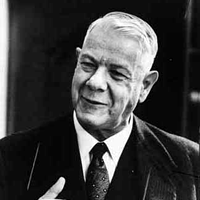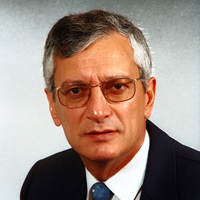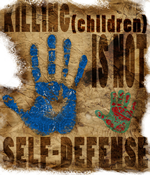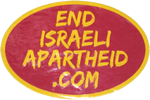| |
Facts About Israeli Apartheid [index]


Nobel Peace Prize Laureates Who Have Spoken Out Against Israeli Apartheid
 |
|
Jimmy Carter
2002 Nobel Peace Prize
“When Israel does occupy this territory deep within the West Bank, and connects the 200-or-so settlements with each other, with a road, and then prohibits the Palestinians from using that road, or in many cases even crossing the road, this perpetrates even worse instances of apartness, or apartheid, than we witnessed even in South Africa." 1
|
|
 |
|
Desmond Tutu
1984 Nobel Peace Prize
“If you change the names, the description of what is happening in the Gaza Strip and the West Bank would be a description of what is happening in South Africa” 1989 2
|
|
 |
|
Nelson Mandela
1993 Nobel Peace Prize
“…injustice and gross human rights violations were being perpetrated in Palestine. In the same period the UN took a strong stand against apartheid; …which helped to bring an end to this iniquitous system. But we know too well that our freedom is incomplete without the freedom of the Palestinians.” 3
|
|
 |
|
Mairead Corrigan-Maguire
1976 Nobel Peace Prize
"I have just come back with my colleague Ann Patterson from Palestine. We joined with the nonviolent resistance movement of the Palestinian people and the Israeli activists in order to do a nonviolent protest to ask that international law be upheld and that the apartheid wall [be removed]. And let’s face it; what the Israelis are doing in Palestine is building an apartheid system. And the world remains silent. Did the world remain silent when there was apartheid built in South Africa? No it did not." 4
|
Institutions speak out against Apartheid
Israeli Human Rights Group B’Tselem concluded:
”Israel has created in the Occupied Territories a regime of separation based on discrimination, applying two separate systems of law in the same area and basing the rights of individuals on their nationality. This regime is the only one of its kind in the world, and is reminiscent of distasteful regimes from the past, such as the Apartheid regime in South Africa.” 25
B’Tselem is an Israeli Information Centre for Human Rights in the Occupied Territories.
Israel’s leading news paper Ha’aretz says:
Sep. 11, 2006
The problem that disappeared: “But the apartheid regime in the territories remains intact; millions of Palestinians are living without rights, freedom of movement or a livelihood, under the yoke of ongoing Israeli occupation…” 27
Oct 03, 2007
Where is the occupation?: “The de facto separation is today more similar to political apartheid than an occupation regime because of its constancy. One side - determined by national, not geographic association - includes people who have the right to choose and the freedom to move, and a growing economy. On the other side are people closed behind the walls surrounding their community, who have no right to vote, lack freedom of movement, and have no chance to plan their future.” 28
Oct 29, 2010
Segregation of Jews and Arabs in 2010 Israel is almost absolute: “Segregation of Jews and Arabs in Israel of 2010 is almost absolute. For those of us who live here, it is something we take for granted. But visitors from abroad cannot believe their eyes: segregated education, segregated businesses, separate entertainment venues, different languages, separate political parties ... and of course, segregated housing.” 29
United Nations Special Rapporteur on Palestine
 |
|
John Dugard
Served as the Special Rapporteur for the United Nations on the situation of human rights in the Palestinian territories. He is a South African professor of international law and has served as Judge ad hoc on the International Court of Justice. Dugard has written extensively on South African Apartheid.
|
“The international community has identified three regimes as inimical to human rights -colonialism, apartheid and foreign occupation. Israel is clearly in military occupation of the OPT. At the same time elements of the occupation constitute forms of colonialism and of apartheid, which are contrary to international law.” (p.3) 32
“The Occupied Palestinian Territory is of special importance to the future of human rights in the world. ….For years the occupation of Palestine and Apartheid in South Africa vied for attention from the international community. In 1994, apartheid came to an end and Palestine became the only developing country in the world under the subjugation of a Western-affiliated regime. Herein lies its significance to the future of human rights. There are other regimes, particularly in the developing world, that suppress human rights, but there is no other case of a Western-affiliated regime that denies self-determination and human rights to a developing people and that has done so for so long.” (p.24) 32
“Apartheid is a system of institutionalized racial discrimination that the white minority in South Africa employed to maintain power over the black majority. It was characterized by the denial of political rights to blacks, the fragmentation of the country into white areas and black areas (called Bantustans) and by the imposition on blacks of restrictive measures designed to achieve white superiority, racial separation and white security. Freedom of movement was restricted by the “pass system” which sought to restrict the entry of blacks into the cities. Apartheid was enforced by a brutal security apparatus in which torture played a significant role. Although the two regimes are different, Israel’s laws and practices in the OPT certainly resemble aspects of apartheid, as shown in paragraphs 49-50 above, and probably fall within the scope of the 1973 International Convention on the Suppression and Punishment of the Crime of Apartheid.” (p.23)
“Well, how does Israel feature in respect of “grand apartheid”? Are there Bantustans in the West Bank? And I think the answer to this question is yes. We do see territorial fragmentation of the kind that the South African government promoted in terms of its Bantustan policy…” 20
“Then one comes to so-called “petty apartheid”—discrimination. There’s abundant evidence of such discrimination. There are, of course, separate roads for settlers and for Palestinians. And let me hasten to add that in South Africa we never had separate roads for black and white. There’s the discrimination in the Seam Zone. That is the area between the Green Line and the Wall. Israeli nationals are free to enter the Seam Zone, but Palestinians require permits and they are seldom granted permits.” 20
“The third feature of apartheid was its security apparatus. In order to maintain white control, the South African authorities introduced Draconian security laws, which resulted in the detention and prosecution of a large number of political activists. But, of course, the same thing happens in Israel.” 20, 32
|
 |
|
Richard A. Falk
American professor emeritus of international law at Princeton University and United Nations Special Rapporteur on Palestinian human rights.
|
He reported to the General Assembly Third Committee: "It is the opinion of the current Special Rapporteur that the nature of the occupation as of 2010 substantiates earlier allegations of colonialism and apartheid in evidence and law to a greater extent than was the case even three years ago. The entrenching of colonialist and apartheid features of the Israeli occupation has been a cumulative process. The longer it continues, the more difficult it is to overcome and the more serious is the abridgement of fundamental Palestinian rights." 30
|
 |
|
Miguel D'Escoto Brockmann
Fromer General Assembly President of the United Nations from September 2008 to September 2009. He presided over the 63rd Session of the United Nations General Assembly.
|
He compared Israeli policies in the Occupied Palestinian Territory to “the apartheid of an earlier era” and said it was important that the United Nations used that term. “We must not be afraid to call something what it is,” he said, adding that, after all, it was the United Nations that had passed the International Convention against the crime of apartheid.
He said the United Nations had taken the lead from civil society 20 years ago, in agreeing that sanctions were necessary to pressure South Africa to end its violations. Perhaps it should consider following the lead of a new generation of civil society groups, which were calling for a non-violent campaign of boycotts, divestment and sanctions to pressure Israel to end its violations of international law. 34
|
 |
|
Human Rights Watch Report 2010:
“Separate and Unequal: Israel's Discriminatory Treatment of Palestinians in the Occupied Palestinian Territories”
|
Human Rights Watch looked at both Area C[in the West Bank] and East Jerusalem and found that the two-tier system in effect in both areas provides generous financial benefits and infrastructure support to promote life in Jewish settlements, while deliberately withholding basic services, punishing growth, and imposing harsh conditions on Palestinian communities. Such different treatment on the basis of race, ethnicity, and national origin that is not narrowly tailored to legitimate goals violates the fundamental prohibition against discrimination under human rights law.
“Palestinians face systematic discrimination merely because of their race, ethnicity, and national origin, depriving them of electricity, water, schools, and access to roads, while nearby Jewish settlers enjoy all of these state-provided benefits," said Carroll Bogert, deputy executive director for external relations at Human Rights Watch. "While Israeli settlements flourish, Palestinians under Israeli control live in a time warp - not just separate, not just unequal, but sometimes even pushed off their lands and out of their homes." 35
|
South Africans Speak Out against Apartheid
 |
|
Hendrik Verwoerd
Prime Minister of South Africa (1958-1966)
Architect of South Africa's apartheid policies
"The Jews took Israel from the Arabs after the Arabs had lived there for a thousand years. Israel, like South Africa, is an apartheid state.” 5
|
|
 |
|
Fatima Hassan
Leading South African human rights lawyer
"The issue of separate roads, [different registration] of cars driven by different nationalities, the indignity of producing a permit any time a soldier asks for it, and of waiting in long queues in the boiling sun at checkpoints just to enter your own city, I think is worse than what we experienced during apartheid." 6
|
|
 |
|
Mondli Makhanya
Editor-in-chief of the Sunday Times of South Africa
“When you observe from afar you know that things are bad, but you do not know how bad. Nothing can prepare you for the evil we have seen here. In a certain sense, it is worse, worse, worse than everything we endured. The level of the apartheid, the racism and the brutality are worse than the worst period of apartheid.”
“The apartheid regime viewed the blacks as inferior; I do not think the Israelis see the Palestinians as human beings at all. How can a human brain engineer this total separation, the separate roads, the checkpoints? What we went through was terrible, terrible, terrible – and yet there is no comparison. Here it is more terrible. We also knew that it would end one day; here there is no end in sight. The end of the tunnel is blacker than black.” 7
|
|
 |
|
Willie Madisha
Former head of the Congress of South African Trade Unions (COSATU)
“On behalf over 1.2 million South African workers organized under the banner of COSATU …It is this solidarity, since the formation of the very first union and across space and time, often in the face of harsh repression, that provided vital moral succor and allowed workers to strengthen their resolve against oppression and exploitation.
In this spirit and with great pride, I congratulate CUPE Ontario for their historic resolution on May 27th in support of the Palestinian people- those living under occupation and those millions of Palestinian refugees living in the Diaspora. We fully support your resolution. As someone who lived in apartheid South Africa and who has visited Palestine I say with confidence that Israel is an apartheid state.
|
In fact, I believe that some of the atrocities committed by the apartheid regime in South Africa pale in comparison to those committed against the Palestinians. The latest outrage by the apartheid Israeli regime-the construction of the hideous Apartheid Wall-condemned by the International Court of Justice extends the occupation of Palestinian lands, disrupts the already precarious economic, social, health and education well being of an entire people and entrenches the Bantustanisation of Palestine. When the governments of the world turn a blind eye to these injustices; when they are seduced by apartheid Israel’s justification of brutality through the pretext of ‘security’; when they silence criticism of state terror through the canard of ‘anti-Semitism’-then it is time for the global workers movement to stand firm and principled against hypocrisy and double standards.
We cannot remain silent any longer. It is time to stand in word and in deed with the peoples of the Middle East and heed their call to support the struggle against occupation. There will be no peace in this region and in the world, without justice.” 8
|
|
 |
|
Ronnie Kasrils
South African Minister of Intelligence (2004-2008)
“Any South African who goes to Palestine today and visits the West Bank and Gaza, or Palestinians living in the State of Israel, come away shocked and, shaking their heads saying “This is far worse than the apartheid we knew." South Africans in great numbers are saying: "What we went through is like a picnic compared to what Palestinians are going through” 9
|
What Israelis are saying about Israeli Apartheid
 |
|
Ehud Barak
Ehud Barak, Israel’s defense minister and former Prime Minister
"As long as in this territory west of the Jordan River there is only one political entity called Israel it is going to be either non-Jewish, or non-democratic… If this bloc of millions of Palestinians cannot vote, that will be an apartheid state". 10
|
|
 |
|
Ehud Olmert
Mayor of Jerusalem 1993-2003 and former Prime Minister of Israel
"If the day comes when the two state solution collapses, and we face a South African style struggle for equal voting rights, then as soon as that happens, the State of Israel is finished." 11
|
|
 |
|
Michael Ben-Yair
Israel's attorney-general (1993-1996)
"We enthusiastically chose to become a colonial society, ignoring international treaties, expropriating lands, transferring settlers from Israel to the occupied territories, engaging in theft and finding justification for all these activities. Passionately desiring to keep the occupied territories, we developed two judicial systems: one - progressive, liberal - in Israel; and the other - cruel, injurious - in the occupied territories. In effect, we established an apartheid regime in the occupied territories immediately following their capture. That oppressive regime exists to this day" 12
|
|
 |
|
Shulamit Aloni
Israeli Prize laureate and minister of education under Yitzhak Rabin
"The US Jewish Establishment’s onslaught on former President Jimmy Carter is based on him daring to tell the truth which is known to all: through its army, the government of Israel practices a brutal form of Apartheid in the territory it occupies. Its army has turned every Palestinian village and town into a fenced in, or blocked in, detention camp. All this is done in order to keep an eye on the population’s movements and to make its life difficult. Israel even imposes a total curfew whenever the settlers, who have illegally usurped the Palestinians’ land, celebrate their holidays or conduct their parades.
|
If that were not enough, the generals commanding the region frequently issue further orders, regulations, instructions and rules (let us not forget: they are the lords of the land). By now they have requisitioned further lands for the purpose of constructing "Jewish only" roads. Wonderful roads, wide roads, well-paved roads, brightly lit at night--all that on stolen land. When a Palestinian drives on such a road, his vehicle is confiscated and he is sent on his way.
On one occasion I witnessed such an encounter between a driver and a soldier who was taking down the details before confiscating the vehicle and sending its owner away. "Why?" I asked the soldier. "It's an order--this is a Jews-only road", he replied. I inquired as to where was the sign indicating this fact and instructing [other] drivers not to use it. His answer was nothing short of amazing. "It is his responsibility to know it, and besides, what do you want us to do, put up a sign here and let some anti-Semitic reporter or journalist take a photo so he that can show the world that Apartheid exists here?" 13
|
|
 |
|
Yossi Sarid
Member of the Knesset (1974-2006)
Leader of Meretz (1996-2003)
Former minister of education and minister of the environment
"The white Afrikaners, too, had reasons for their segregation policy; they, too, felt threatened — a great evil was at their door, and they were frightened, out to defend themselves. Unfortunately, however, all good reasons for apartheid are bad reasons; apartheid always has a reason, and it never has a justification. And what acts like apartheid, is run like apartheid and harasses like apartheid, is not a duck – it is apartheid. Nor does it even solve the problem of fear: Today, everyone knows that all apartheid will inevitably reach its sorry end." 14
|
|
 |
|
Udi Aloni
American-Israeli filmmaker, writer and visual artist
"As long as the Jewish settler who is sitting on the plundered land of Bil'in, and the contractor from uptown Tel Aviv who is making a fortune from building on that land, are free to go to the Pixies concert, while the original inhabitants of Bil'in are prevented from doing so, simply because they are Arab - the concert should be regarded as an apartheid concert." 15
|
|
 |
|
Uri Davis
Dual citizen of Israel and the UK
Observer-member of the Palestine National Council
"It is the duty of civil society…to single out the State of Israel for the same specific attention that was paid to the apartheid regime of the Republic of South Africa…, not because racism in Israel is that different from racism in the UK or North America but because apartheid in Israel (the regulation of racism through Acts of Parliament) is akin to apartheid in the former (pre-1994) South Africa."
|
Apartheid would not hit the visitor to Israel in the same way. The Israeli legislator refrained from legislating “petty apartheid” in Israel. There are no passport control queues for “Jews” versus passport control queues for “non-Jews”;
“It was imperative to be able to veil its core apartheid and project the “Jewish state” as “the only democracy in the Middle East. Israel’s admission to the UN, let alone its continued membership in the UN, depended on it. Hence, the absence of “petty apartheid” in Israel.” 16
|
|
 |
|
Azmi Bishara
Palestinian writer and politician
Member of the Knesset until 2007
"The Palestinian citizens are discriminated against both in a negative sense, because they are not Jewish, and also in a positive sense, because they are Arabs: they remind Israel of the original conflict and of the question of Palestine. These are two different kinds of discrimination…For example, there are many foreign workers in this country who are discriminated against because they are not Jewish…We are subject to two distinct types of discrimination; the first concerns disparities in the allocation of state budgets and those kinds of things; while the second concerns the denial of our identity and the contradictions that exist between the state and our identity and memory… When all is said and done, this is the state of the Jews and not their (the Palestinians’) state; therefore, the discrimination that is practiced against them is structural, institutionalized. Israel is in a permanent denial vis-à-vis Palestinian identity and Palestinian history." 17
|
|
 |
|
Salman Masalha
Researcher of Arab culture, Palestinian poet and translator
“The alienation between Arabs and Jews can be seen everywhere. It has not arisen solely in the context of the national conflict, but is rather a result of an establishment policy which has expropriated Arabs’ lands to build communities ‘for Jews only” and has pushed the Arab inhabitants into localities under an “ethno-Zionist siege” on all sides.”
“This national alienation is evident in the apartheid reflected throughout the media. Anyone watching talk shows on television will immediately notice a balance in terms of the guests in the studio: There is a religious person and a secular person, a settler and someone from Peace Now. Only the Arab citizen is absent from every discourse.” 23
|
|
 |
|
Ariel Sharon
Israeli general.
Israel’s 11th Prime Minister till 2006
“Everybody has to move; run and grab as many hilltops as they can to enlarge the settlements, because everything we take now will stay ours. Everything we don't grab will go to them.” 18
|
|
 |
|
Moshe Dayan
Served as Chief of Staff of the IDF.
Defense minister and leader of the Labor Party in Israel
“We have no solution, you shall continue to live like dogs, and whoever wishes may leave, and we will see where this process leads.” 19
|
|
 |
|
Neve Gordon
Academic and the author of Israel's Occupation
“The most accurate way to describe Israel today is as an apartheid state. For more than 42 years, Israel has controlled the land between the Jordan Valley and the Mediterranean Sea. Within this region about 6 million Jews and close to 5 million Palestinians reside. Out of this population, 3.5 million Palestinians and almost half a million Jews live in the areas Israel occupied in 1967, and yet while these two groups live in the same area, they are subjected to totally different legal systems. The Palestinians are stateless and lack many of the most basic human rights. By sharp contrast, all Jews -- whether they live in the occupied territories or in Israel -- are citizens of the state of Israel. The question that keeps me up at night, both as a parent and as a citizen, is how to ensure that my two children as well as the children of my Palestinian neighbors do not grow up in an apartheid regime.” 26
|
Other Important Voices Against Israeli Apartheid
 |
|
Ben White
Israeli Apartheid. A Beginner’s Guide
Freelance journalist and writer
“For political Zionism to come to fruition – for a Jewish state to be created in Palestine – it was necessary to carry out as large a scale as possible ethnic cleansing of the country’s unwanted Arab natives. But even in 1948, and especially in 1967, Israel was unable to fully ‘cleanse’ the land of the Palestinians. As a result, Israel’s fallback position was to implement an apartheid regime of exclusion and discrimination. Where the dispossession had been most effective – inside Israel’s pre-1967 borders –apartheid could be less explicit. But in the OPT, home to a vast majority of Palestinians, Israeli apartheid had to be overt and iron-fisted.” 21
|
|
 |
|
Henry Siegman
Ordained Orthodox rabbi
Director of the U.S./Middle East Project in New York
Executive director of the American Jewish Congress (1978-1994)
"Israel’s relentless drive to establish "facts on the ground" in the occupied West Bank, a drive that continues in violation of even the limited settlement freeze to which Prime Minister Benjamin Netanyahu committed himself, seems finally to have succeeded in locking in the irreversibility of its colonial project. As a result of that "achievement," one that successive Israeli governments have long sought in order to preclude the possibility of a two-state solution, Israel has crossed the threshold from "the only democracy in the Middle East" to the only apartheid regime in the Western world..."
|
“When a state’s denial of the individual and national rights of a large part of its population becomes permanent, it ceases to be a democracy. When the reason for that double disenfranchisement is that population’s ethnic and religious identity, the state is practicing a form of apartheid, or racism, not much different from the one that characterized South Africa from 1948 to 1994. The democratic dispensation that Israel provides for its mostly Jewish citizens cannot hide its changed character. By definition, democracy reserved for privileged citizens–while all others are kept behind checkpoints, barbed-wire fences and separation walls commanded by the Israeli army–is not democracy but its opposite.” 22
|
|
 |
|
Mouin Rabbani
Senior Middle East analyst with the International Crisis Group
“According to the relevant UN convention, which defines apartheid as a crime against humanity, the defining characteristic of the phenomenon is…the separate administration of persons within a single territorial unit on the basis of race or ethnicity. Explicitly racist laws that confirm such policies and the institutionalized forms of discrimination that result from such administrative separation are thus consequences of apartheid. Israel’s consistent claims since 1967 that it subjects the Palestinian civilian and Jewish settler population in the territories to separate legal regimes, and issues them with distinct identity cards, vehicle license plates, and so on for purely “administrative “reasons, therefore provide formal confirmation.” 24
|
|
 |
|
Mick Davis
Chairman of the UJIA (United Jewish Israel Appeal)
Executive of the Jewish Leadership Council
He warned in front of more than 160 people at the London Jewish Cultural Center that Israel could become an apartheid state unless there was a two-state solution with the Palestinians, "because we then have the majority going to be governed by the minority". 31
|
|
 |
|
Barry Morgan
Archbishop of the Anglican Church in Wales (2003-present)
“Now, I realize that whenever I say anything about this matter, I will be accused of being anti-Semitic, but our own Prime Minister has described Gaza as a prison camp... The situation resembles the apartheid system in South Africa because Gaza is next to one of the most sophisticated and modern countries in the world – Israel.
“Whereas Israel has excellent technology and infrastructure, in Gaza people carry goods by horse and cart. Whereas Israel has an educational system second to none, next to it live children who are denied even a basic education because their schools have been bombed.”
33
|
References
1. Jimmy Carter, Palestine Peace Not Apartheid, book 2006.
2. Haaretz (December 1989)
3. ADDRESS BY PRESIDENT NELSON MANDELA AT THE INTERNATIONAL DAY OF SOLIDARITY WITH THE PALESTINIAN PEOPLE Pretoria, (December 7, 1997) issued by office of the President
4. Address to EU Parliament (May 2007)
5. Chris McGreal (2006-02-07). "Brothers in arms - Israel's secret pact with Pretoria". The Guardian. http://www.guardian.co.uk/israel/Story/0,,1704037,00.html. Rand Daily Mail, November 23, 1961
6. http://www.independent.co.uk/news/world/middle-east/this-is-like-apartheid-anc-veterans-visit-west-bank-865063.html
7. “Worse than apartheid,” by Gideon Levy, Haaretz, 10/07/2009 http://www.humanrightsdelegation.org/press_item.asp?id=9&page=2
8. “South African unions support CUPE Ontario resolution on Israel,” July 4, 2006
9. http://www.middleeastmonitor.org.uk/articles/europe/772-opposing-apartheid-palestine-and-the-experience-of-south-africa-with-ilan-pappe-and-ronnie-kasrils
10. Barak: make peace with Palestinians or face apartheid,” by Rory McCarthy, The Guardian, February 3, 2010.
11. “Olmert warns of end of Israel,” BBC, November 29, 2007.
12. http://www.haaretz.com/hasen/pages/ShArt.jhtml?itemNo=136433
13. “Indeed there is Apartheid in Israel,” by Shulamit Aloni, Yediot Acharonot, May 1, 2006. The article was published in Israel=s largest circulating newspaper in the Hebrew edition but not in the English‑language YNetNews. It was translated by Sol Salbe, an Israeli-Australian editor and translator, and distributed through the Australian based Middle East News Service sponsored by the Australian Jewish Democratic Society http://www.jerusalemites.org/articles/english/2007/101print.htm
14. “Yes it is apartheid,” by Yossi Sarid, Haaretz, April 25, 2008
15. Udi Aloni,Israelis are behaving like spoiled rich brats, Haaretz, 21/03/2010
16. http://www.uridavis.info/jewish_national_fund_apartheid_israel.htm
17. The Palestinians of Israel. An interview with Azmi Bishara in: Roane Carey (ed.), The New Intifada. Resisting Israel’s Apartheid. p139-140
18. http://thinkexist.com/quotation/everybody-has-to-move-run-and-grab-as-many/368150.html
19. (1967) http://mondoweiss.net/2009/01/the-palestinians-in-israeli-officials-own-words.html
20. http://www.normanfinkelstein.com/john-dugard-on-israel-south-africa-and-apartheid/
21. Ben White: Israeli Apartheid. A Beginner’s Guide
22. http://www.thenation.com/doc/20100125/siegman
23. Salman Masalha, Israel’s apartheid doesn’t stop at the West Bank, Haaretz 03/03/2010
24. Mouin Rabbani,A Smorgasbord of Failure in: Roane Carey (ed.), The New Intifada. Resisting Israel’s Apartheid. p 87
25. http://www.btselem.org/English/Publications/Summaries/200205_Land_Grab.asp
26. http://articles.latimes.com/2009/aug/20/opinion/oe-gordon20
27. http://www.haaretz.com/print-edition/opinion/the-problem-that-disappeared-1.197015
28. http://www.haaretz.com/print-edition/opinion/where-is-the-occupation-1.230452
29. www.haaretz.com/.../segregation-of-jews-and-arabs-in-2010-israel-is-almost-absolute-1.321728
30. Report of the Special Rapporteur on the situation of human rights in the Palestinian territories occupied since 1967, August 2010, p 4
http://www.un.org/ga/search/view_doc.asp?symbol=A/65/33.
31. http://www.haaretz.com/jewish-world/diaspora/u-k-jewish-leader-s-rebuke-of netanyahu-sparks-ire-of-british-zionists-1.32658
32. Report of the Special Rapporteur on the situation of human rights in the Palestinian territories occupied since 1967, 29. Jan. 2007, http://www.flw.ugent.be/cie/Palestina/a-hrc-4-17.pdf .
33. http://www.walesonline.co.uk/news/wales-news/2010/09/23/archbishop-attacked-forlinking-israel-to-apartheid-91466-27324244/#ixzz17S6jSV76
34. http://www.un.org/News/Press/docs/2008/ga10789.doc.htm
35. http://www.hrw.org/node/95113
|
|

See Our Posters

Choose one FREE Sticker



|







































